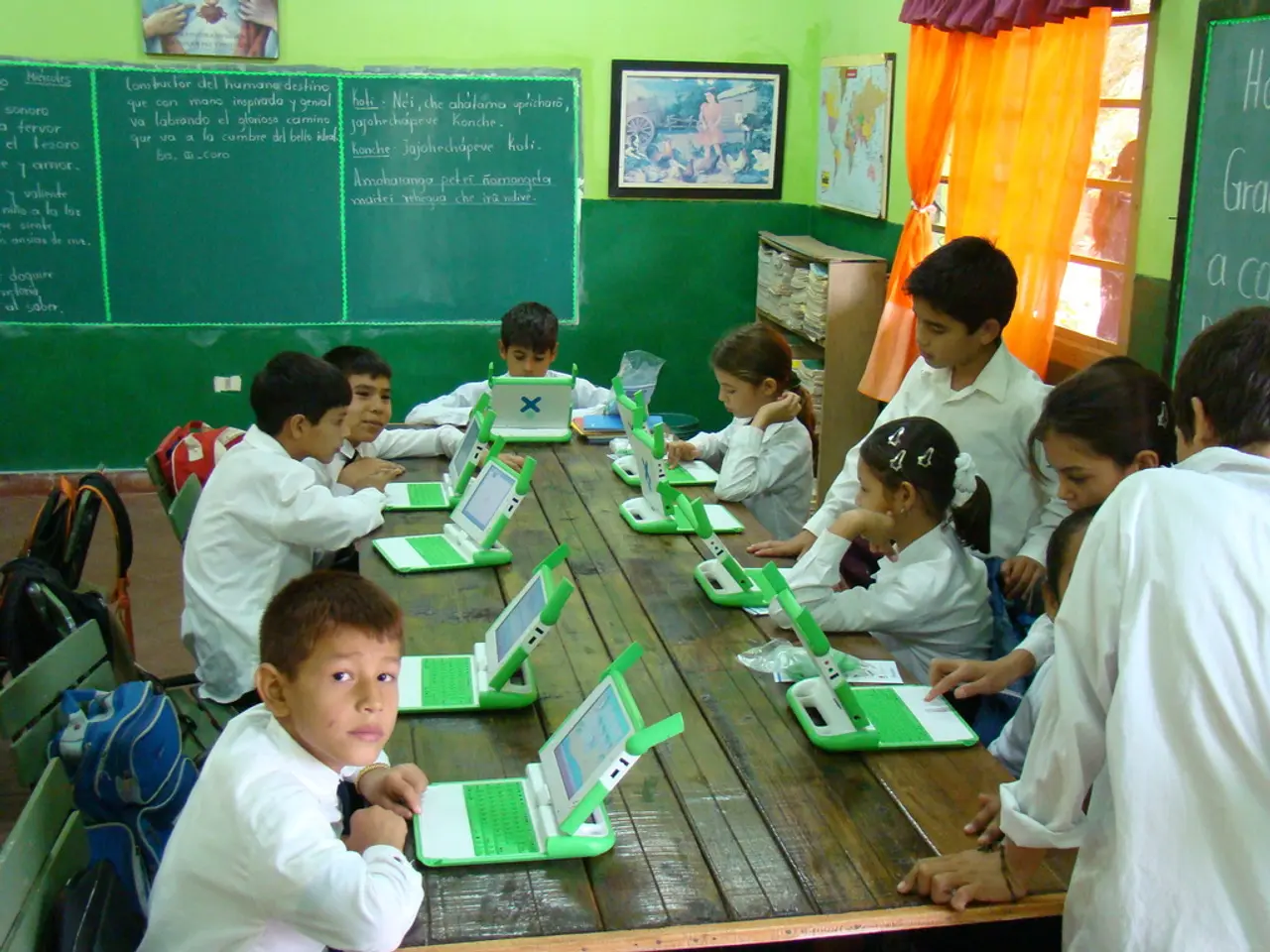Education Revolution: Are Advanced Learning Systems (ALS) a Boon or a Peril for Schools? - Installment 1
In recent times, the educational landscape has seen a significant shift with the introduction of Intelligent Tutoring Systems (ITS). These systems, designed to personalise learning and enhance quality, are becoming increasingly popular in schools across the nation.
An ITS evaluates students' learning status, strengths, and weaknesses, generating tailored learning materials to ensure a faster and more effective learning experience than traditional classroom teaching. Schools, as independent public bodies, are responsible for the provision and maintenance of such systems, including those related to information technology.
However, the use of ITS involves processing a large amount of personal data from both students and teachers. This raises concerns about data protection, a responsibility that schools must balance with practicality, particularly when it comes to minors. According to the 29th activity report of the LDI NRW, the processing of personal data in online learning platforms requires a legal basis.
The specific use of ITS in individual cases and administration is the responsibility of the schools themselves. They must ensure data protection compliance when using these systems, following guidelines that are yet to be fully defined due to the complex legal regulations and the evolving nature of AI technology in education.
The AI integrated in the learning platform should not use student and teaching staff data for its own training purposes or transmit it to third parties. Schools are responsible for data processing associated with the use of ITS for educational purposes, with Art. 6 para. 1 sentence 1 DSGVO allowing the processing of data by a public authority if there is either consent or a legal basis in national law or if it is necessary for the fulfillment of the school's tasks.
Consent as a legal basis for schools in the context of teaching is not an option due to compulsory schooling and employment relationships. Instead, the legal basis for the use of ITS in NRW is created by § 120 para. 5 SchulG and § 121 para. 1 SchulG, which allow the use of digital systems in schools for the fulfillment of the school's tasks.
In the second part of this article, we will delve into potentially more controversial points regarding the data protection-compliant use of ITS, exploring issues such as the lack of a centralised, legally secure platform or uniform standards, leading to fragmented approaches at different schools. We will also discuss the perceived restrictions posed by strict EU data protection laws and bureaucratic hurdles, and the challenges they present in defining clear accountability.
One such challenge is the potential for teachers to assign fantasy names to real student names, making personal data identifiable. It is crucial that schools and educators prioritise data protection while leveraging the benefits of ITS to enhance the learning experience for students.
Read also:
- Understanding Hemorrhagic Gastroenteritis: Key Facts
- Stopping Osteoporosis Treatment: Timeline Considerations
- Trump's Policies: Tariffs, AI, Surveillance, and Possible Martial Law
- Expanded Community Health Involvement by CK Birla Hospitals, Jaipur, Maintained Through Consistent Outreach Programs Across Rajasthan




